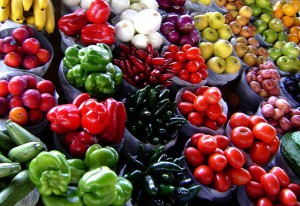Dietary exposure to pesticides associated with reduced semen quality
A new study out of Harvard University has linked dietary exposure to pesticides with lower sperm quantity and quality in men. Three hundred thirty-eight semen samples were collected from 155 men from 2007 – 2012. The diet of each participant was assessed using a dietary survey. The concentration of sperm and level of movement were analyzed for each semen sample. Pesticide exposure due to dietary intake was calculated using data from the U.S. Department of Agriculture’s Pesticide Data Program. After taking into account confounding factors including weight and lifestyle habits such as smoking, researchers found that men exposed to the highest levels of pesticide residue through fruit and vegetable consumption had almost 50% fewer sperm and more abnormally shaped sperm when compared to men who consumed the least amount of pesticides. Importantly, the study points out that lower semen quality was not simply associated with the quantity of produce consumed but instead the quantity of fruits and vegetables that were high in pesticide residues. Produce with high pesticide residues included strawberries, spinach and peppers. Men who were exposed to low to moderate levels of pesticides had a greater percentage of normally shaped sperm. Jorge Chavarro, the study’s senior author, stressed, “These findings should not discourage the consumption of fruit and vegetables in general. In fact, we found that consuming more fruits and vegetables with low pesticide residues was beneficial. This suggests that implementing strategies specifically targeted at avoiding pesticide residues, such as consuming organically grown produce or avoiding produce known to have large amounts of residues, may be the way to go.”


